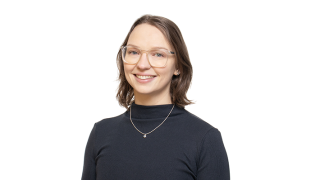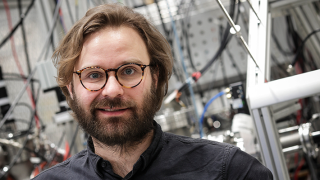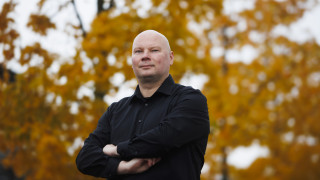Spectrometers made in Jyväskylä spark international interest

JYU is currently the world’s only supplier offering complete recoil spectrometry systems on a turnkey basis. The latest research equipment was sold to Norway for over €400,000.
“Our University has decades of experience in building state-of-the-art research equipment for its own use,” says Professor Timo Sajavaara from the University of Jyväskylä. “In recent years, we have also made similar equipment available to others as commercial products, and they have been selling well.”
This was the third sale of spectrometry equipment for the University of Jyväskylä. In 2022 and 2023, the recoil spectrometer systems developed and built at the Accelerator Laboratory were delivered to the University of Surrey in the UK and the Slovak University of Technology in Bratislava. Previous, slightly larger deliveries were priced at well over half a million euros.
“All of our clients have been very satisfied with their products, which has attracted new interested customers,” says Professor Sajavaara. “Commercial activities bring more research resources for the department, and the increasing popularity of recoil spectrometers also increases the visibility of research at the University of Jyväskylä. The growing interest in our products and the deals we have completed demonstrate the uniqueness of our skills. No other organisation in the world can match our expertise when it comes to developing and building recoil spectrometers.”
Data analysis software developed at JYU is used internationally
In addition to the equipment, the delivery includes automation, data analysis software, training, and expert support. Potku, the software developed in Jyväskylä for analysing measurement results, enables efficient and versatile analysis of measurement data.
“This openly published software has not only been useful for researchers in our department but also for over ten institutes abroad,” says Staff Scientist Mikko Laitinen from the Accelerator Laboratory of the University of Jyväskylä. “From the outset, open availability was a deliberate decision, and it has partly removed one of the most significant barriers to the equipment being adopted more widely.”
New devices built for clients can always be used for new experiments, so each delivery expands international research cooperation. Research related to each delivery has also consistently led to new scientific publications.

State-of-the-art technology for challenging environments
The University of Oslo is the latest organisation to use the ToF-ERDA (time-of-flight elastic recoil detection analysis) recoil spectrometer. This research device is used for accelerator-based material physics and consists of a beamline section, a measuring chamber, a time-of-flight detector, an energy detector, and a data collection system. What makes this delivery exceptional is that the equipment was installed in a clean room where silicon wafers are handled under carefully defined conditions while wearing protective clothing.
“These types of facilities require extreme cleanliness and precision, setting special requirements for both the equipment design and the installation process,” says Laitinen. “This was strong proof of our ability to respond to the most demanding challenges, such as when the working environment significantly deviates from that of a traditional research laboratory.”

Recoil spectrometers are essential for developing everyday devices
Recoil spectrometry is commonly employed in thin film research and the refinement of coating processes. This technique enables precise depth profiling of all elements, including hydrogen, in materials such as new solar cells and future AI and quantum computer chips. Thin films have enabled the development of all microelectronic devices used in everyday life. Coating processes are also required for solar cells and solid-state batteries, which have been tested in Jyväskylä many times and will soon be brought to market by the electric car industry.
“Glasses, for example, have various kinds of coatings,” says Laitinen. “Some of these are optical, such as anti-reflection coatings, while others have mechanical properties that affect the hardness of the lens. In microelectronics in particular, spectrometers can analyse the variables involved in the coating process, thereby supporting the development of coating products. If the hardness of the coating changes, it can be analysed whether this occurred due to the removal of hydrogen and other light impurities or because of some other factors.”
Economically significant activities
The sale of research equipment supplements the University’s core funding and competitive research funding. This income is important for the University, enabling the employment of doctoral students for research teams, for example. It also provides researchers a tangible incentive to devote some of their working time to commercial activities.
“This is important for us, both in terms of our strategic partnerships and our finances,” says Professor Sajavaara. “All revenues from such sales help us to conduct basic research, maintain and update the research infrastructure, and offer our researchers the opportunity to utilise the latest technology when developing new equipment. It helps us to remain at the forefront of international expertise.”








